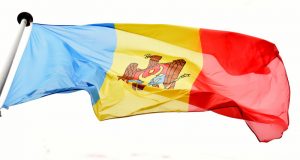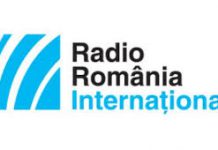Moldova has secured international political and financial support in the context of the Russian-Ukrainian war.
Until December 2020, the ex-Soviet Republic of Moldova, led by pro-Russian officials, was constantly in Moscow’s tow. Pro-European voices were however present, as confirmed by the country’s signing in 2014 an association agreement with the European Union, providing for cooperation in areas like trade and culture.
But Moldova categorically broke with Russia less than 2 years ago, with the election of the pro-European Maia Sandu as head of state, replacing the pro-Russian Igor Dodon.
Geographically, Moldova stands between the eastern part of the EU (neighbouring Romania) and Ukraine, with some of its territory occupied by Transnistria, a small self-proclaimed breakaway republic backed by Moscow.
Quite a few political and military analysts voiced concerns that in the context of the invasion of Ukraine, Russia might take advantage of its military presence in Transnistria to launch an offensive in that region as well. Fortunately, at least for the time being, this is only a hypothetical plan.
Nonetheless, with millions of Ukrainians fleeing the war, the Republic of Moldova is receiving the largest number of refugees per capita in Europe, which puts tremendous pressure on Europe’s poorest state.
Under these circumstances, Germany, France and Romania Tuesday co-chaired an international conference in Berlin, aimed at putting together a support platform for that country. Around 50 delegations took part, representing international organisations and some 30 states, including EU members, the US, Canada and Japan.
Donors pledged with over EUR 695 million in aid for Moldova, 100 million of which will be non-reimbursable financial assistance. They also agreed to take over nearly 12,000 of the almost 100,000 Ukrainian refugees currently in that country.
Our message is clear: the Republic of Moldova is not alone, said Germany’s foreign minister Annalena Baerbock, alongside her French and Romanian counterparts, Jean-Yves Le Drian and Bogdan Aurescu, talking to the Moldovan PM Natalia Gavriliţa.
According to the German official, this assistance will be the start of a sustainable support platform, with further aid to follow in areas like diversifying energy sources, border management and political reform. All of these are designed to help Moldova ease out its dependence on Moscow.
„Moldova is the most vulnerable among Ukraine’s neighbours,” Natalia Gavriliţa said, and added that her country has no security umbrella to rely on and therefore it needs good friends and reliable partners.
The next donor conference for Moldova may be hosted by Bucharest.
(Roxana Vasile, Radio Romania international)










